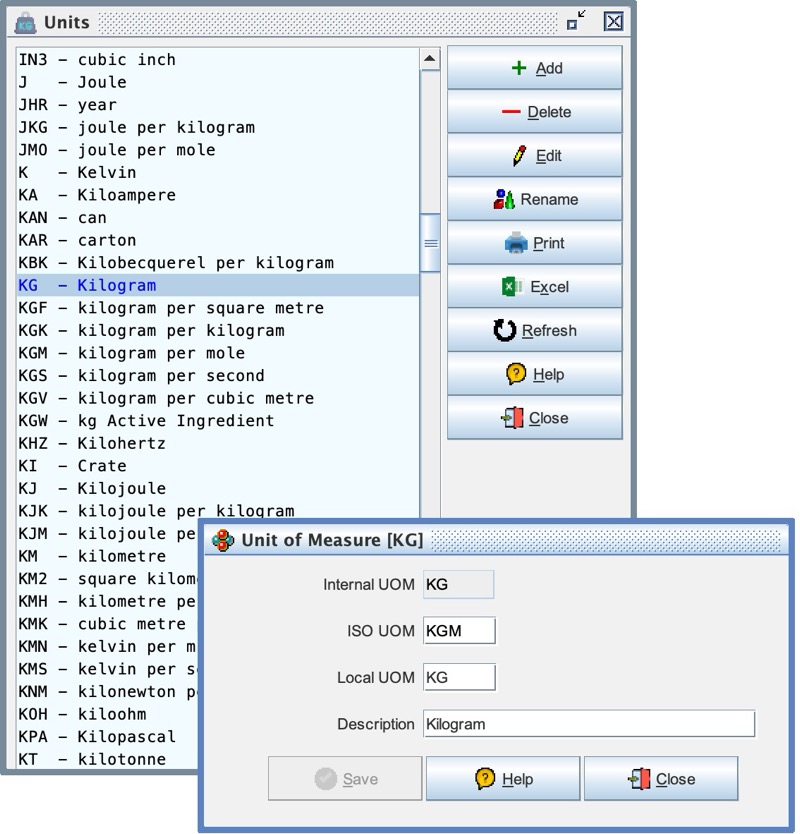Difference between revisions of "Units of Measure"
From Commander4j Wiki
(Created page with "Commander4j comes with a standard set of Units of Measures (UOMs) defined in it's database, but you can always add your own.<br> File:uom_admin.jpg<br> By default each U...") |
|||
| Line 3: | Line 3: | ||
[[File:uom_admin.jpg]]<br> | [[File:uom_admin.jpg]]<br> | ||
| − | By default each UOM is recorded in 3 possible ways, Internal (as used by Commander4j), ISO and Local. The reason behind the application supporting 3 potentially different representations of the same unit is to make interfacing with external systems easier. If you look at the [[Interface | + | By default each UOM is recorded in 3 possible ways, Internal (as used by Commander4j), ISO and Local. The reason behind the application supporting 3 potentially different representations of the same unit is to make interfacing with external systems easier. If you look at the [[Interface Admin]] screen you will notice that as part of the inbound and outbound message processing it is possible to convert the data from ISO / Local to Internal and then from Internal to ISO / Local again.<br> |
Revision as of 15:05, 29 July 2017
Commander4j comes with a standard set of Units of Measures (UOMs) defined in it's database, but you can always add your own.
By default each UOM is recorded in 3 possible ways, Internal (as used by Commander4j), ISO and Local. The reason behind the application supporting 3 potentially different representations of the same unit is to make interfacing with external systems easier. If you look at the Interface Admin screen you will notice that as part of the inbound and outbound message processing it is possible to convert the data from ISO / Local to Internal and then from Internal to ISO / Local again.
